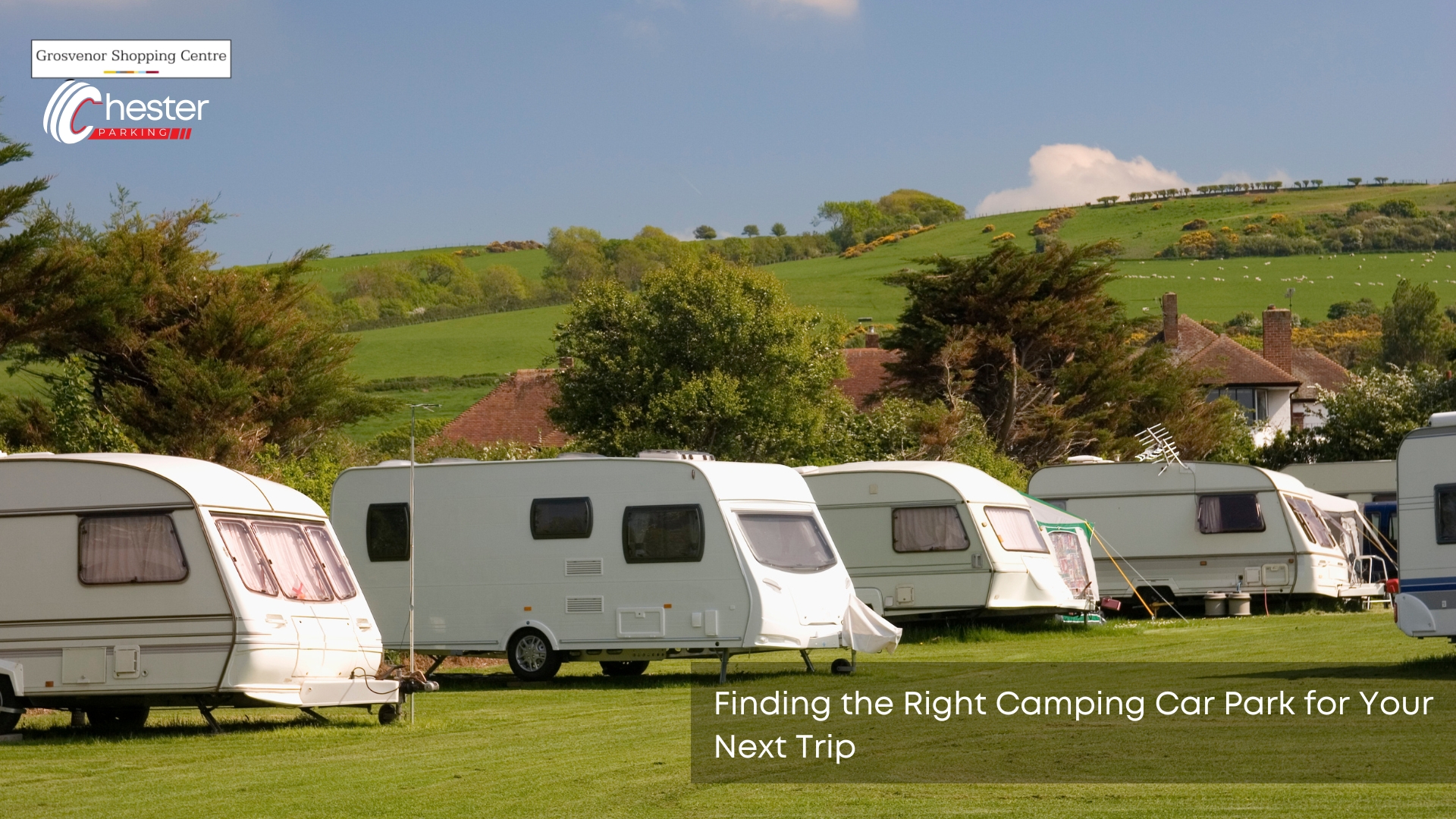A great camping trip starts with finding the right place to park. Whether you’re in a campervan, a car with a tent, or a motorhome, not all car parks are designed with campers in mind. From rural laybys to purpose-built camping car parks, your choice affects comfort, safety, and access to nature. In this guide, we explain how to pick the best camping car park for your trip, what to look for, and how to avoid surprises on the road.
What Is a Camping Car Park and How Is It Different?
A camping car park is a space that allows vehicles to park with the option to camp or stay overnight. It may include designated bays for campervans or cars with tents and sometimes features such as toilets or waste disposal points. Unlike regular car parks, they are designed with campers in mind. Choosing the right one depends on location, facilities, and whether you plan to sleep in your vehicle.
Where Can You Find Camping Car Parks in the UK?
You can find camping car parks in national parks, near coastal spots, and at many countryside attractions. Websites like Park4Night, Searchforsites, and the Camping and Caravanning Club list legal and trusted sites. Some farms and pubs also allow camping for a small fee. It helps to search by region and check reviews from other campers. But availability often depends on whether overnight stays are allowed.
Do All Camping Car Parks Allow Overnight Stays?
No, not all campgrounds allow overnight stays. Some are day-use only and close after a certain time. Look for signs that clearly mention overnight rules or check listings online. If in doubt, ask the landowner or managing company. Staying overnight without permission could lead to fines or being asked to leave, so always confirm before settling in.
What Facilities Should You Look for in a Camping Car Park?
Good camping car parks often offer:
- Toilets or water points
- Waste and recycling bins
- Flat ground for parking or pitching
- Lighting and safe access
- Clear signs and space markings
Facilities vary depending on the location – some rural ones are basic, while others near campsites offer more amenities. Always match the spot with the needs of your trip.
Is the Car Park Suitable for Campervans or Motorhomes?
Not all car parks have space or clearance for larger vehicles. Check for height restrictions, turning space, or dedicated motorhome bays. Some sites welcome campervans but not motorhomes due to size or access limits. Read the rules and review user photos, if available. Choosing a suitable spot prevents hassle or getting stuck.
How Can You Check If the Spot Is Legal and Safe?
To check legality, look for signs that confirm camping or overnight use is allowed. Use trusted camping directories or council websites. Safety-wise, consider factors such as lighting, nearby traffic, and whether the area feels secure. Avoid isolated laybys or unmarked farmland without permission. A legal and safe car park gives you a better night’s rest and less worry.
Do You Need to Book a Camping Car Park in Advance?
Some car parks require booking, especially those near popular holiday destinations or during peak seasons. Others work on a first-come, first-served basis. Apps and websites often show real-time availability. Booking ahead can save time and guarantee your space. However, for flexible trips, it’s helpful to have a few backup options in mind.
Can You Use a Regular Car Park for Camping?
In most cases, no. Regular car parks often ban overnight stays and camping. Even if you’re sleeping in your vehicle, local rules may still apply. Without facilities or security, it may also be less comfortable. If unsure, look for designated overnight parking or wild camping spots with clear permission. It is better to plan than risk being moved on.
What Should You Pack When Staying in a Camping Car Park?
Pack essentials for self-sufficiency, including:
- Water containers and food supplies
- Rubbish bags and toilet kit
- Torches, blankets, and warm clothing
- Power bank or low-energy lights
- Camping chairs or cookers, if allowed
Always follow site rules and leave the area tidy. A little prep goes a long way when parking away from formal campsites.
Are There Quiet Hours or Rules You Should Follow?
Yes, many campgrounds have quiet hours, typically from around 10 pm to 7 am. This maintains a peaceful environment for all users. Other common rules include no fires, limited use of generators, and keeping pets under control. Always read the signs and respect the space. Following these simple rules makes your stay more enjoyable and helps others welcome you, just as spaces managed by Parking Chester often do.
How Do You Avoid Fines or Parking Problems When Camping?
To avoid problems, follow signs, use designated parking spaces, and refrain from parking in restricted areas or on private land without permission. Pay any required fees and display your tickets. Apps often show the most up-to-date rules. In built-up sites, car park bollards also help protect spaces and guide traffic safely. A respectful and legal approach ensures a smooth and stress-free trip. It also encourages more places to stay camper-friendly in future.
What’s the Best Way to Find a Scenic Yet Practical Car Park?
The best way is to combine planning with flexibility. Use apps that show user photos, reviews, and real location details. Look for spaces with views, but consider those close to toilets, trails, or towns if needed. Look for spaces with views, but consider those close to toilets, trails, or towns if needed. If visiting the city, where to park is just as important as finding the perfect camping view. Try a few during the trip to see which suits your camping style best. With time, you’ll learn how to strike a balance between peace and practicality.
How Can You Choose the Right Camping Car Park for Your Trip?
Start by deciding what matters most – view, price, location, or facilities. Then, search using trusted sites and filter by your vehicle size or group type. Read reviews, check road access, and have a backup in case it’s full. A little planning helps you find a spot that fits your needs and makes your outdoor stay more enjoyable.


Leave a Reply